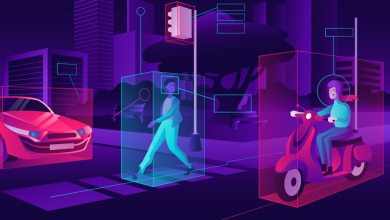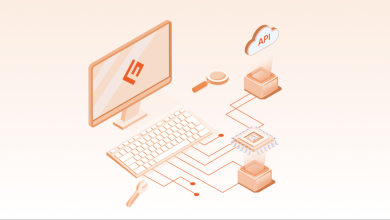Artificial intelligence (AI) has shifted its scope from futuristic science to business necessity, gripping its tentacles into industries such as healthcare, finance, retail, logistics, etc. Yet again, even as organizations race to adopt the value proposition found deep in the art of deep learning and a myriad of other AI technologies, one question remains: how does one build these systems responsibly? Mere innovation is not sufficient; one has to think about ethics, accountability, and long-term impacts at all stages.
A lot of companies, however, outsource the development of AI for that matter. External experts partner with businesses to innovate faster while maintaining a level of ethical oversight. However, it is more than reduced costs; it is a strategic provision for responsible design, transparent deployment, and sustainable growth in an age of intelligent machines.
Outsource for AI Development?
Creating an in-house AI requires tremendous expenses. You need to hire a large team of data scientists and machine learning engineers, domain experts, and have an infrastructure that is fit to process massive amounts of data. Unfortunately, not every organization runs on such resources. This is where outsourcing shines.
Outsource AI development and then you gain access to the following:
- Specialized Expertise – Outsourced teams usually possess highly specific experience deep diving into such things as deep learning, natural language processing, and computer vision, much of which is most likely difficult to build in-house.
- Scalability – Since projects can grow or shrink according to demand, they also do not come with any internal hiring or layoff complications in terms of changing their scale.
- Cost-Effectiveness – Companies need not invest millions in building internal infrastructures, but could use an external AI lab or platform.
- Faster Time-to-Market — Basically, the ready-made frameworks and tools of outsources experts help shorten the time to market for AI-powered products.
But that is the least of it: cheap and feature-rich for the technical side. The real wealth lies in using it as leverage to create AI solutions that espouse ethical values and long years of responsibility.
Deep Learning and Ethics Question
Deep learning, the very engine of modern AI, allows machines to identify patterns, forecast, and even develop their own innovative pieces. The very thing gets its head impressive but then ethical dilemmas emerge. For example:
- Data Bias – AI trained models may amplify prevailing social inequalities.
- Privacy – The collection and processing of personal user data may infringe on privacy rights.
- Transparency – Oftentimes, deep learning systems resemble black boxes, making it rather difficult to explain their decisions.
- Labor Disruption – Longitudely, automation can harm employment when mismanaged.
These are areas, presumably, where outsourced teams can bring to play their qualifications. Ethics-by-design principles are being more commonly added to the development portfolio of leading development partners, promising that their AI projects will give allowances for fairness, accountability, and inclusivity.
Outsource-as-a-Responsible-Innovation
Outsourcing AI projects to organizations should not be regarded merely as a transactional relationship. It is a partnership built on trust, accountability, and shared values. Here are few ways to use outsourcing for ethical AI:
1. Access to Global Perspectives.
Outsourcing often means working with very diverse teams across countries and cultures. In this case, more fresh perspectives can indeed be found to reduce bias in AI systems. A model trained and tested across widely varying datasets can be more inclusive and representative of global populations.
2. Ethical Standards as Deliverables.
Progressive AI-houses from outsourced countries do not only embed ethical compliances within their deliverables. This may range from documentation of training sources for data, fairness audits, explanatory reports, to international qualifications, such as compliance to the GDPR.
3. Governance Frameworks.
Business would not save cost but avoid throwing in cash on partners who are good neither in technology nor compliance and governance. These frameworks help in tracking the trail of AI models so that accountability is ensured all through from development to deployment.
4. Focus on Core Business Goals.
With AI outsourcing, internal teams focus on their core mission and business goals. This reduces the temptation to compromise on ethical behavior for technical performance; rather, oversight efforts can ensure alignment with organizational values of outsourced solutions.
Case Examples of Successful Outsourced AI
- Healthcare Diagnostics
A European healthcare company outsourced model development for deep learning applications in diagnostics to a specialized AI lab in Asia. Here, the partnership was not only about accuracy of disease detection, but also about the privacy of patients throughout the use of advanced data anonymization technologies. The results were a diagnostic tool scalable and beneficial to patient outcomes while maintaining confidentiality.
- Detecting Fraud in Finance
A global financial institution collaborated with an outsourced team with expertise in AI to develop a fraud detection engine. The developers of the subjects applied explainable AI models for compliance officers to interpret why a transaction was flagged. This transparency reduced false negatives and raised the trust of customers.
- Retail Personalization
A retail brand outsourced a recommendation system to an AI startup. Through fairness audits, the system prevents perpetuating stereotypes (e.g., preferences assumed based on gender or location solely). The brand managed higher engagement while preserving an inclusive shopping experience.
These examples indicate that outsourcing cannot simply be about reducing costs. It can also be about raising ethical standards in bringing innovation to market.
Best Practices for Ethical Outsourcing in AI
The Following Practices Need to Be Adopted by the Organizations to Properly Outsource Their AI Development for Responsible Innovation:
- Choose the right partner – not only technical skills but also the partner’s ethical philosophy. Ask how they handle data privacy, fairness, and transparency.
- Set Clear Guidelines– Contracts should contain ethical requirements. They should also set the scope of explainability, auditing, and compliance.
- Regular Oversight-Maintain continuous communication, and monitoring, outsourcing is not severing ownership-thus, by collaborative accountability.
- Invest in Education-Having the internal team trained in understanding AI ethics grants them the ability to review outsourced solutions.
- Long-Term Effects Planning– Outsourced AI must be aligned with the broader corporate goals and responsibilities to the community.
Outsourcing into the Future: Sustainable AI
Increasingly, as companies adopt AI into their businesses, outsourcing remains the preferred method in the industry irrespective of size. But the discussion has started to change. No longer is outsourcing only about saving time and money – it is also increasingly about building AI responsibly.
Future outsourcing models will probably involve the following:
- Ethics-Service: Where outsourcing partners provide ethical auditing and among their core offerings.
- Sustainable AI: Outsourced teams that design new models while keeping energy efficiency into consideration to help reduce environmental impacts.
- Collaborative Ecosystems: Networks of businesses, universities, and non-profits working together through AI hubs that are externally managed to find a balance between innovation and responsibility.
Therefore, it would be possible to achieve the futuristic vision by integrative approaches in the AI outsourcing development domains and beyond into deep learning.
Conclusion
Deep learning is indeed powerful, but with great power comes great responsibility. By adopting AI, businesses have found a way of building up cutting-edge expertise through outsourcing and ethical oversight. Companies ensure that their AI systems drive responsible innovation through selective choice of partners, incorporation of accountability, and preference for inclusiveness.
The transformation of AI finds technological manipulators to be leaving their marks today. They know that Outsourced AI ethical away from being a facilitator of efficiencies instead stands as a catalyst to establishing a smarter, fairer, and more sustainable digital world.




